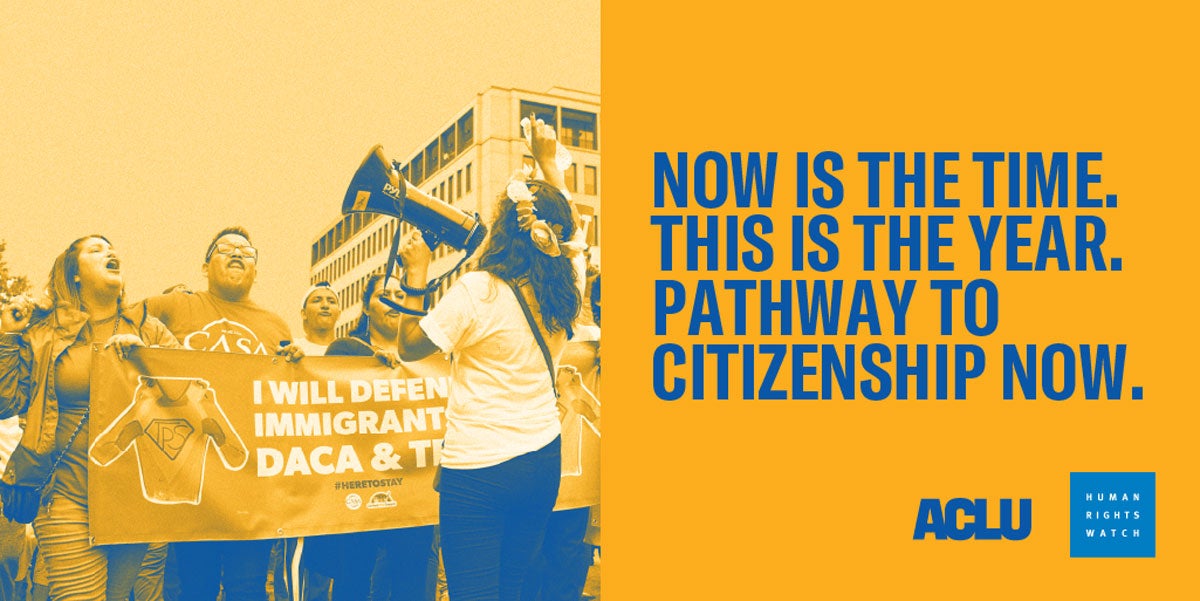Earlier this month, I started work as the Aryeh Neier Fellow at Human Rights Watch. I feel I’m finally on the cusp of fulfilling my dreams. But since my family brought me to the United States as a child, I’ve never been able to access permanent legal status. My Deferred Action for Child Arrivals (DACA) work permit expires in May 2022, and unless Congress acts, I might not be able to see this fellowship through.
I’m one of millions of people in the US whose lives hang in the balance as congressional leaders decide whether to include a pathway to citizenship for immigrant communities in the current budget reconciliation bill, which Congress only needs a simple majority to pass.
Three-quarters of US adults support providing people like me with a pathway to citizenship. But earlier this month, the Senate parliamentarian, the official advisor to the Senate on interpreting internal Senate rules, issued an opinion that disfavors legislators’ first attempt at bill language to get this done.
But legislators still have several options. One of these is to update the immigration registry, which has provided a legal means under the Registry Act of 1929 for undocumented immigrants to secure a lawful status based on their longstanding presence in the United States. Congress has updated the registry several times to ensure it is applicable to more recent arrivals. Right now, the law requires otherwise qualifying immigrants to have been present in the US since 1972 to gain legal status. Congress could amend this date to provide relief to people who have built lives here over the last decade, which would regularize millions.
Undocumented immigrants are vital to the fabric of the US. Many of us risked our lives to keep the economy going, our communities safe, and people healthy during the Covid-19 pandemic. While those who did were designated “essential” workers and hailed as heroes, legally we remained expendable and relegated to a permanent underclass with no pathway to citizenship. This treatment should not continue. Congress needs to take this opportunity to pass immigration reform, transform our outdated and inhumane immigration system, and provide deeply rooted immigrants – including not only DACA recipients like me, but also essential workers, Temporary Protected Status (TPS) holders, and others with strong ties to the United States – with a pathway to citizenship, through reconciliation or other means. Our lives, and my future, depend on it.










